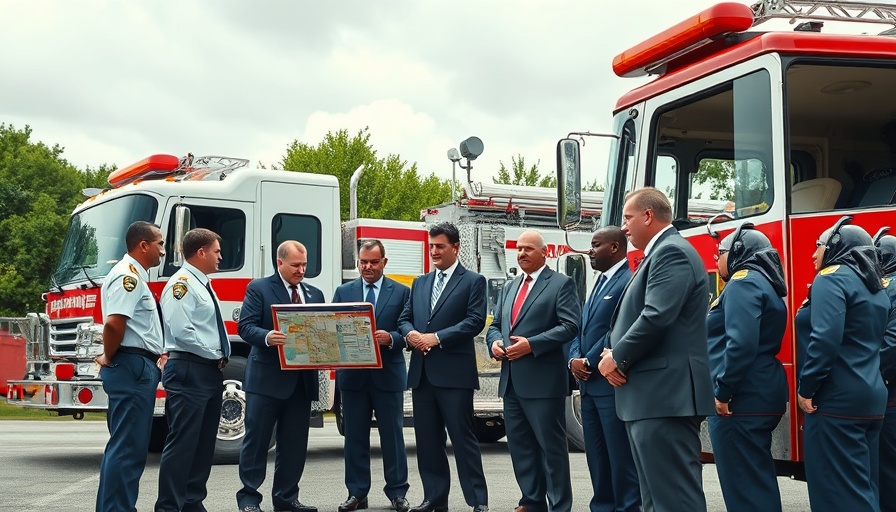
Trump's Texas Visit: A Closer Look at Flood Response
As Central Texas continues to grapple with the aftermath of devastating floods, former President Donald Trump's recent tour of the affected areas has ignited a discussion about emergency response and accountability. Trump visited numerous flood sites, defending local officials facing scrutiny over their handling of the crisis while underscoring the federal government’s commitment to providing aid.
The heavy rains and subsequent flooding that impacted the region left many residents displaced and sparked debates about preparedness and response efforts. In his remarks, Trump emphasized the importance of a united front during such emergencies and expressed confidence in local leaders, a stance that has drawn mixed reactions from Texas residents and officials alike.
Public Response to Trump's Visit
The tour attracted a crowd of supporters who appreciated Trump's reassurance and promises of assistance. However, it also invited criticism from those who feel that local leaders have failed to effectively manage the crisis. Many citizens are questioning the delayed responses and the adequacy of resources allocated to handling the situation quickly and effectively. As news spreads across platforms like Houston Public Media and its NPR affiliates, the ongoing debate illustrates the community’s desire for greater accountability in disaster management.
Emergency Management in Focus
As flooding events become more frequent in Texas, discussions around disaster response strategies are increasingly crucial. The need for a robust emergency management system has never been clearer. Experts suggest that a comprehensive assessment of past responses, including the one during this recent flood, could inform future policies and help mitigate risks during similar events.
Additionally, local public media plays a vital role in informing residents about safety measures, recovery resources, and the status of local infrastructure. Platforms like Houston NPR and KUHF public radio have been pivotal in disseminating information, assisting the community through education coverage and emergency information during this crisis.
Looking Ahead: Community Resilience
As the recovery process unfolds, the community’s resilience will be put to the test. While federal support is crucial, the involvement of local citizens and organizations will determine the long-term effectiveness of recovery efforts. Grassroots initiatives to raise awareness and offer aid can empower residents while enabling them to create a collaborative framework for faster response times in the future.
The intersection of politics and emergency response continues to evolve, especially in the wake of natural disasters. As we move forward, it becomes increasingly important for citizens to engage with their leaders and hold them accountable, ensuring that both local and federal responses are effective and timely.
Ultimately, the flood has become more than just a natural disaster; it reflects a complex web of social, political, and environmental challenges that need to be addressed collectively. The conversation sparked by Trump’s visit serves as a reminder of the greater need for effective communication among all stakeholders in emergency management, which is a topic that will continue to resonate in future community dialogues across Houston and beyond.
 Add Row
Add Row  Add
Add 



Write A Comment